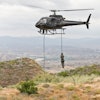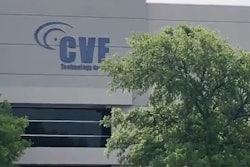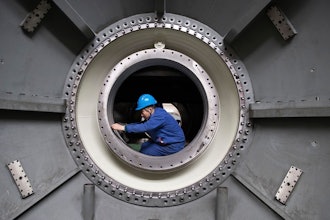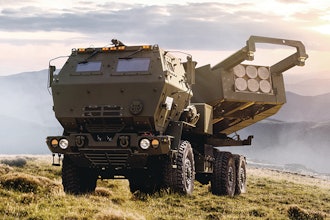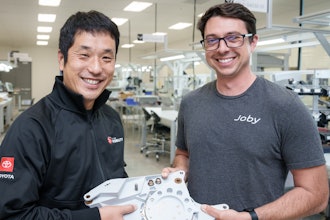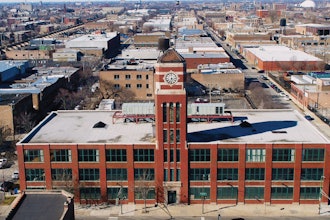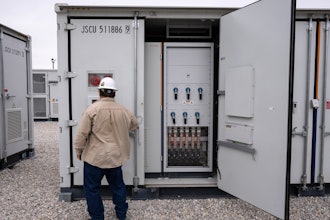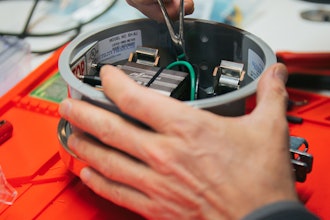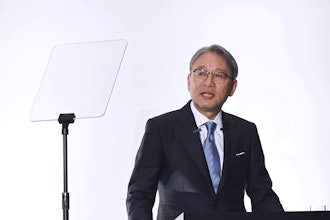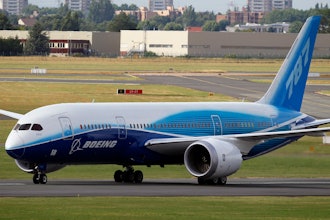SAN DIEGO (AP) — A federal court ruled Thursday that a Mexican man who was arrested during an immigration sting at a Los Angeles manufacturing plant should not be deported, a rebuke that may influence how immigration authorities target factories and offices.
U.S. Immigration and Customs Enforcement agents stormed the premises of Micro Solutions Enterprises, a maker of printer cartridges, after getting a search warrant in February 2008 for employment-related documents and arrest warrants for eight employees. About 100 armed, uniformed agents entered the factory, blocking all visible exits and announcing that no one could leave or use their cellphones.
Gregorio Perez, who entered the country illegally from Mexico in 1994, was one of 130 workers arrested. He disclosed his status during questioning.
The 9th Circuit Court of Appeals said Perez shouldn't be deported because his arrest was outside the parameters of the search warrant. Judge Marsha Barzon, an appointee of President Bill Clinton, wrote that there was "clear evidence in the record here that the plan was focused on the detention of the workers, not the search for documents."
"(The) search warrant here authorized a search only for the employer's records — presumably, paper documents or electronic files. Yet, the agents used the warrant's authority to enter the working area and detain hundreds of workers. Why a search for records required going onto the floor of a large printer-cartridge factory is unclear," Barzon wrote.
An internal memo issued before the operation stated that ICE "(would) be conducting a search warrant and expects to make 150-200 arrests." It said ICE would have two to five buses to transport detainees and 200 detention beds available.
The American Civil Liberties Union Foundation of Southern California and attorney Noemi Ramirez, who represented Perez, said the ruling would likely invalidate deportation proceedings against other workers arrested in the operation and that its effects could be felt elsewhere because ICE uses similar tactics around the country.
"ICE cannot carry out preplanned mass detentions, interrogations, and arrests that violate a person's Fourth Amendment rights," Ramirez said. "This victory is not merely Mr. Perez's victory, but a victory for people that value freedom, that believe the Constitution means what it says and for those that believe that the immigrant community is not alone in their struggle."
The Justice Department declined to comment. ICE had no immediate comment.
John Sandweg, a former acting ICE director and former acting Homeland Security Department general counsel, said the ruling may force ICE to more fully disclose its plans in search warrants at worksites but he didn't expect additional impact. The ruling applies only to the 9th Circuit, which includes California and eight other Western states.
"I think it's a strong rebuke of ICE and the way in which they're doing these worksite operations," Sandweg said. "They're just going to need to modify their behavior. It's going to require ICE to be more candid in the warrants that their real targets are the undocumented workers in order to avoid this."
The operation had many hallmarks of an employer sting, which have become more common under President Donald Trump but are still rare.
In March 2006, ICE received an anonymous tip that the company employed 200 to 300 workers in the country illegally, leading to the raid two years later. Women were taken to the cafeteria and men were told to wait in a hallway. Men were ordered to form two lines — one for those with work authorization and one without.
Perez was ordered to another hallway after he didn't line up. During questioning, he acknowledged that he was not authorized to work. He was bused to a detention center and released at 1 a.m.
An immigration judge denied ICE's bid to deport him but was overturned by the Board of Immigration Appeals, leading to the 9th Circuit ruling.


